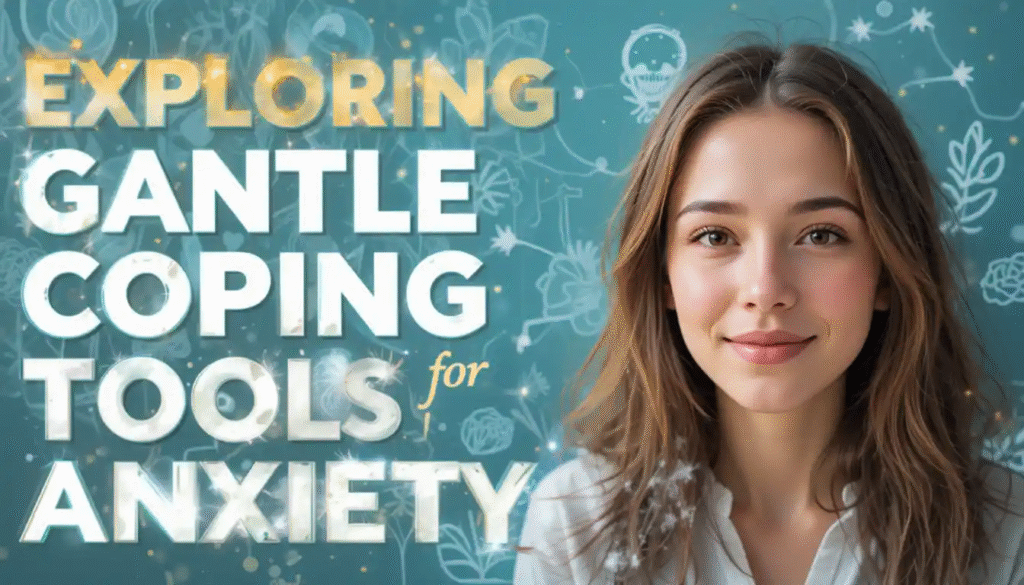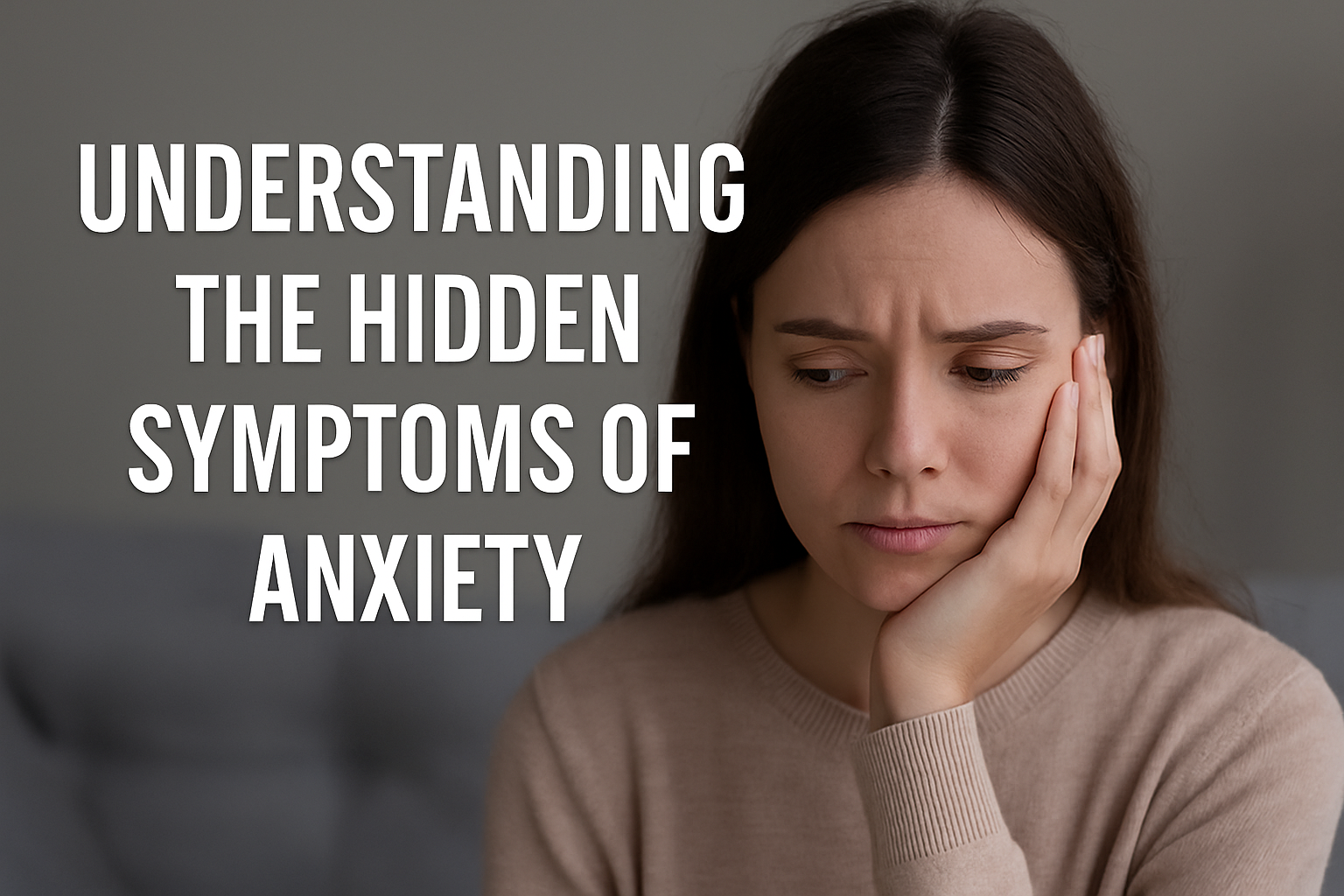
Introduction
“Worry often gives a small thing a big shadow.” This old Swedish proverb explains how something invisible like anxiety can cast a deep and silent impact on daily life. Many adults struggle silently, unaware of the real symptoms of anxiety they experience every day.
Some symptoms are easy to spot like a racing heart or sleepless nights. But others remain hidden — showing up in behavior, thought patterns, or physical health in ways that are misunderstood or ignored. This blog focuses on those less obvious symptoms of anxiety and how recognizing them can improve mental well-being.
1. Constant Fatigue Without Clear Reason
Many adults feel tired all the time. They blame their jobs or lack of sleep. But sometimes, the cause is hidden anxiety. When the mind is in constant alert mode, the body gets worn out even without physical activity. This fatigue does not go away with rest. It keeps returning until the root issue is addressed.
2. Difficulty Making Simple Decisions
An adult may take too long to choose what to wear or what to eat. These small choices begin to feel overwhelming. This indecisiveness is one of the overlooked symptoms of anxiety. The fear of making the wrong decision creates mental blocks, making daily tasks stressful.
3. Muscle Tension and Unexplained Pain
Many anxious people report tight shoulders, clenched jaws, or stomach pain. These are physical signs, but the cause is mental. The brain signals danger. The body stays tense. Over time, this tension leads to chronic pain. Doctors often find no clear medical cause, which leaves adults confused.
4. Overthinking Conversations
Replaying what was said in a meeting or analyzing a friend’s reply may seem normal. But if this habit becomes constant, it could be a hidden form of anxiety. The mind keeps scanning for mistakes or signs of disapproval, which increases worry and self-doubt.
5. Feeling Restless Even When Sitting Still
Some adults feel like they always need to be doing something. Sitting still makes them uneasy. This restlessness is one of the hidden symptoms of anxiety. It may not look like panic but it wears down the mind over time.
6. Avoiding Eye Contact or Social Events
Social withdrawal is often mistaken for shyness or introversion. But in many cases, it hides social anxiety. Fear of being judged or misunderstood can lead to avoiding people or even loved ones. This symptom grows silently and reduces confidence over time.
7. Perfectionism and Fear of Failure
Trying to do everything perfectly may seem like a good habit. But for some adults, it hides deep anxiety. The need to control every outcome or avoid mistakes becomes draining. This mental pressure creates stress, leading to both emotional and physical exhaustion.
8. Irritability and Sudden Mood Changes
Unexpected anger, snapping at others, or becoming quickly annoyed are not always signs of a bad day. These emotional shifts can also be silent symptoms of anxiety. When the brain is overloaded, it reacts strongly to even small issues.
9. Trouble Sleeping with Racing Thoughts
Some people fall asleep easily but wake up in the middle of the night with worry. Others lie in bed unable to shut their mind off. These sleeping patterns often indicate hidden anxiety. Nighttime becomes a quiet space where unspoken fears grow louder.
10. Physical Symptoms with No Medical Explanation
From chest pain to dizziness or sudden nausea, many symptoms of anxiety show up as unexplained physical problems. These symptoms are real and distressing. However, they are not always linked to heart or stomach conditions. They begin in the mind and affect the body.
Exploring Gentle Coping Tools

Adults may explore different tools to manage these symptoms of anxiety. Mindfulness, breathing exercises, or talking to a therapist are effective. Some adults also prefer calming scents or personal rituals. One growing area of interest is pheromone perfumes. These natural compounds are linked to mood and emotional perception. While they are not treatments, they can be explored as gentle confidence boosters during social situations.
Why Hidden Symptoms Are Often Missed
Most adults do not recognize anxiety unless it looks like panic. That’s why hidden symptoms of anxiety stay unnoticed. These symptoms hide behind everyday stress, normal tiredness, or even personality traits. But early recognition leads to better support and healthier coping methods.
Final Thoughts
Anxiety does not always shout. Sometimes it whispers through fatigue, restlessness, or fear of judgment. Learning to recognize the hidden symptoms of anxiety helps adults take steps toward calm and balance. Paying attention to your mind and body is not weakness. It is a step toward a more peaceful life.
Frequently Asked Questions (FAQs)
1. What are hidden symptoms of anxiety?
They include fatigue, overthinking, restlessness, and physical tension with no medical cause.
2. Can anxiety make you feel sick without being ill?
Yes. Anxiety may cause stomach pain, headaches, or chest tightness without an actual illness.
3. Is perfectionism a sign of anxiety?
It can be. Some adults use perfectionism to cope with fear of failure or judgment.
4. How is physical tension related to anxiety?
The brain tells the body to stay alert. Muscles stay tight, causing pain over time.
5. Can anxiety cause irritability?
Yes. Hidden worry may lead to short tempers or mood changes.
6. What are some non-medical ways to reduce anxiety?
Mindfulness, journaling, soft music, and gentle walks can help.
7. What role do pheromones play in emotional wellness?
Some adults explore pheromone perfumes to feel relaxed or socially confident.
8. Can anxiety affect relationships?
Yes. Avoidance, irritability, or fear of judgment may cause distance from others.
9. Are sleeping problems a hidden symptom?
Definitely. Difficulty falling asleep or waking up worried can indicate anxiety.
10. When should someone seek help?
If anxiety symptoms interfere with daily life, speaking with a mental health professional is a good step.

